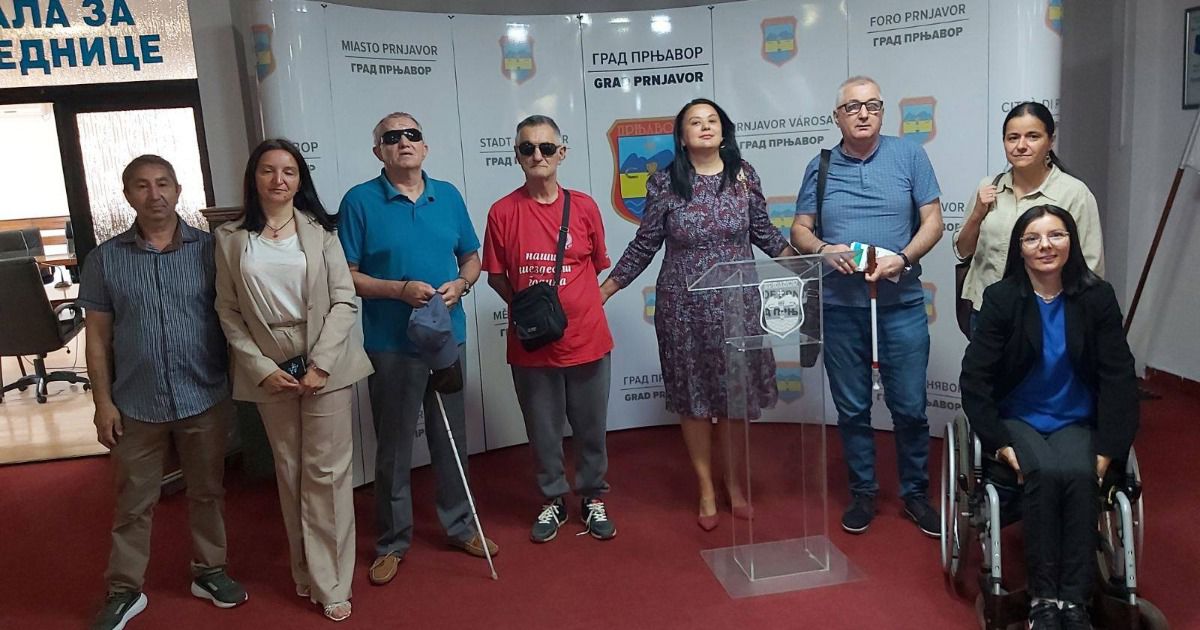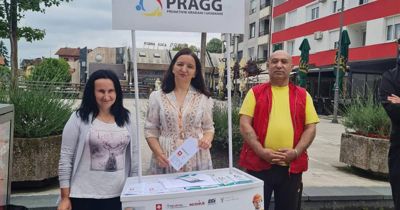
If the authorities of the City of Prnjavor assess the situation and needs of individuals requiring daily assistance in an appropriate and timely manner, this local community will take a significant step toward supporting the inclusion of persons with disabilities in social, educational, and professional life, thereby enabling them greater independence and a better quality of life. In doing so, they would follow the example of Banja Luka, Prijedor, and Bijeljina, where city assemblies have already established personal assistance services through official decisions.
The Association of Parents of Children with Physical and Mental Disabilities “NEVEN”, the organization “Roma Girl – Romani ćej”, the Association of Parents with Four or More Children “4+”, the Youth Center Prnjavor, and the City Organization of the Blind in Prnjavor, with support from PRAGG, launched coordinated advocacy efforts in April this year. So far, they have gained support from other civil society organizations and citizens of Prnjavor for recognizing and introducing the right to personal assistance for persons with disabilities.
This was reaffirmed during a public street action and a roundtable discussion, where activists from these organizations received backing to initiate the adoption of regulations and acts necessary for the realization of the right to personal assistance at the local level.
“We will strive to secure the authorities' support for our initiative, either by amending the Decision on Extended Rights in Social Protection passed by the City Assembly of Prnjavor to include a provision on personal assistance, or through another format proposed by the executive authorities and submitted to the City Assembly for discussion and adoption,” said representatives of the five associations behind the initiative.
Larisa Kovačević from the organization “Roma Girl – Romani ćej” explained that, in preparation for launching this critically important initiative, the coalition conducted a comprehensive assessment of needs and the current state of personal assistance services for persons with disabilities in the City of Prnjavor. She noted that the analysis identified key challenges, shortcomings, and gaps in the existing service provision system.
“The findings will serve as a foundation for developing specific recommendations to improve the accessibility, quality, and sustainability of personal assistance services in Prnjavor. This will support the inclusion of persons with disabilities in social, educational, and work life, and enable them greater independence and a better quality of life,” said Kovačević.
In early 2025, the City Assembly of Prnjavor adopted the Decision on Extended Rights in Social Protection, which defines the scope, types, and amounts of financial support, as well as the criteria for accessing additional social protection rights in the city. This decision provides a local legal basis for offering additional support to vulnerable population groups. The extended rights encompass activities and measures aimed at mitigating the consequences of social needs for individuals and families unable to meet their basic needs through existing statutory rights. Beneficiaries include persons with disabilities, children with developmental delays, elderly individuals lacking adequate family care, and families in social need. The 2025 City Budget of Prnjavor has allocated funds for the implementation of these rights, with service delivery organized through the Prnjavor Center for Social Work.
Although personal assistance is not yet included in this decision, the legal framework and structure of the document allow for the inclusion of such a service as an addition to the existing extended rights. Based on the experiences of cities like Prijedor, Bijeljina, and Banja Luka, initiative leaders believe a pilot program can be launched for 5 to 10 beneficiaries, with an estimated annual cost of BAM 40,000 to 60,000. These funds could be secured through a combined financing model involving both the city budget and project-based funding from the non-governmental sector.
Their envisioned approach includes a gradual rollout of services to test local capacities and better identify specific needs, building a pool of personal assistants in cooperation with the Employment Bureau and educational institutions, drafting local regulations to govern service criteria, procedures, and standards, and eventually implementing the program in a sustainable and high-quality manner.
In this way, the activists believe, the City of Prnjavor could become a positive example of a local community actively improving the quality of life for its most vulnerable citizens—namely, persons with disabilities. They point to their detailed needs assessment as evidence, which clearly highlights the widespread demand for establishing this service in Prnjavor.
“The analysis showed that persons with disabilities and their families in Prnjavor live without systemic support that would allow them greater independence and equal access to education, work, and social life. Instead, they rely on sporadic project-based activities and informal assistance. At the same time, there is institutional readiness and positive precedent within the already adopted extended rights framework, which creates a realistic opportunity to introduce personal assistance through a simple amendment to the existing decision,” the activists conclude.
They are implementing all activities under the slogan:
“Personal Assistance – Support That Brings Freedom.”





